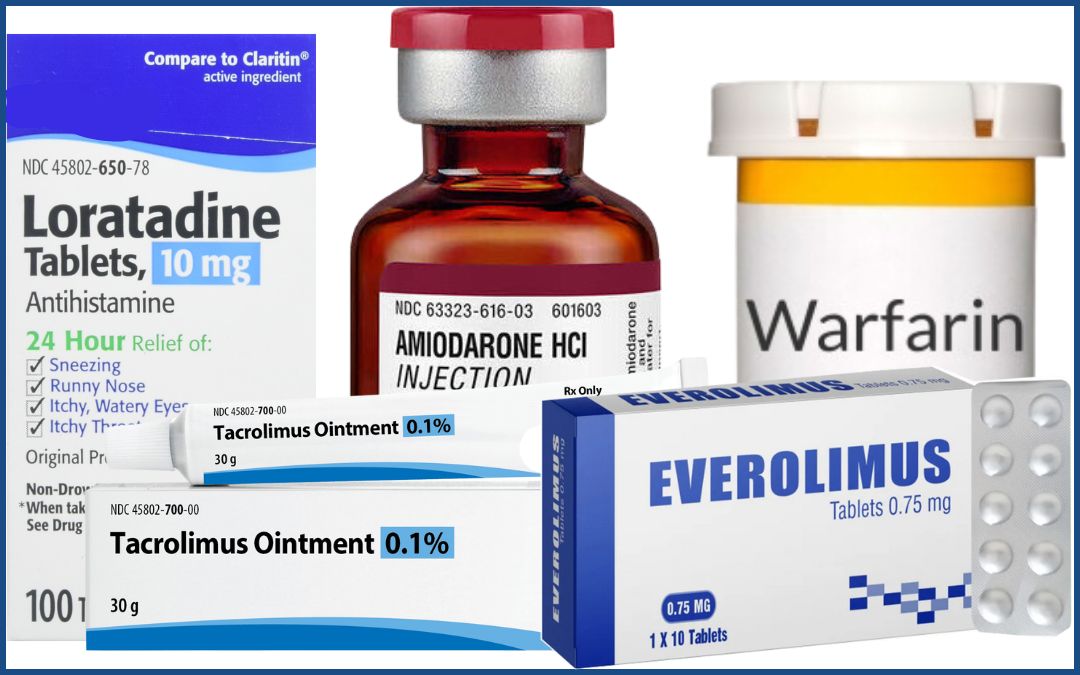I recently had a clinical experience that shed light on another area of cannabinoid medications that is under-investigated and underreported. This is the drug-drug interactions that affect the function of cannabinoids.
There has been a lot of research and a growing awareness of the effect cannabinoids, particularly cannabidiol (CBD), can have on conventional medications. These effects can increase or decrease the effectiveness of the conventional medication, often with potentially catastrophic results. However, there has been little to no focus on which conventional medications can undermine the benefits (and possibly the safety) of cannabinoid medicines upon which patients are more and more frequently relying.
Overview of Cannabinoid Effects on Conventional Medications
Many medications can be affected by cannabinoids. There is pretty good information at this point about which medications are affected by tetrahydrocannabinol (THC) and CBD. There is much less known about the interactions between conventional medications and other cannabinoids like CBG, CBC, CBN, and others. Nonetheless, many professional drug interaction checkers (programs) now list interactions between THC or CBD and conventional medications.
These interactions, as mentioned, can be quite important. For examples, CBD can interact with Amiodarone (a powerful and dangerous heart medication), Tacrolimus and Everolimus (cousin immune-suppressant medications that prevent organ rejection in transplant patients) and blood-thinners like Warfarin. CBD can even interact with Loratadine (Claritin) which, in elevated doses, can lead to potentially fatal heart problems.
THC by contrast seems less likely to cause these sorts of problems. There are a number of medications with which THC can theoretically interact, but among them, only Tacrolimus seems to be a reality.
What About Conventional Medications Affecting Cannabinoids?
Anecdotally, we have reports that caffeine interacts with THC to increase the psychotropic effects (makes it more intoxicating). Many recreational users do this deliberately. Similarly, alcohol can increase the intoxication of THC.
The decongestant Pseudoephedrine seems to decrease the effectiveness of THC. Oddly, a similar decongestant, Phenylephrine, does not appear to have the same effect.
CBD, as mentioned, has a lot of interactions with conventional medications. It is also known, at higher doses, to potentially cause liver toxicity. It is not known whether that liver toxicity can be exacerbated by other medications that interact with CBD, or are hard on the liver themselves, like Itraconazole, several of the HIV medications, alcohol, and others. While not directly related to drug interactions, it is also not known whether underlying liver disease like hepatitis B/C or Wilson’s Disease could interact negatively with CBD.
Where We Stand
Far too often both scientific and lay articles end with a call for more research. I find this both irrefutable and frustrating as it often abdicates making sound, necessary decisions based on what we know now. In this case, however, we know very little and we do need more research to more fully understand the effects and risks posed by conventional drugs’ interaction with cannabinoid medications.
Moreover, we really need a paradigm shift in the thinking about the role of cannabinoids in medicine, to stop seeing them as recreational substances or alternative meds, and start viewing them as necessary treatments that must not be interfered with any more than any other medication.
Consult with a Qualified Massachusetts Medical Marijuana Expert Today
Those considering using THC, CBD, or any type of medicine found in cannabis to help manage their condition should consider speaking to a trained medical expert who is knowledgeable about using cannabis therapeutically.
Massachusetts medical marijuana doctor Jordan Tishler, M.D. sits on the faculty of Harvard Medical School and has years of experience helping patients treat pain and other ailments using cannabis. He and the team at InhaleMD stand ready to assist patients in determining whether medical marijuana is right for them.
For more information, or to set up a virtual consultation with the team at InhaleMD, call us at (617) 477-8886 today.

